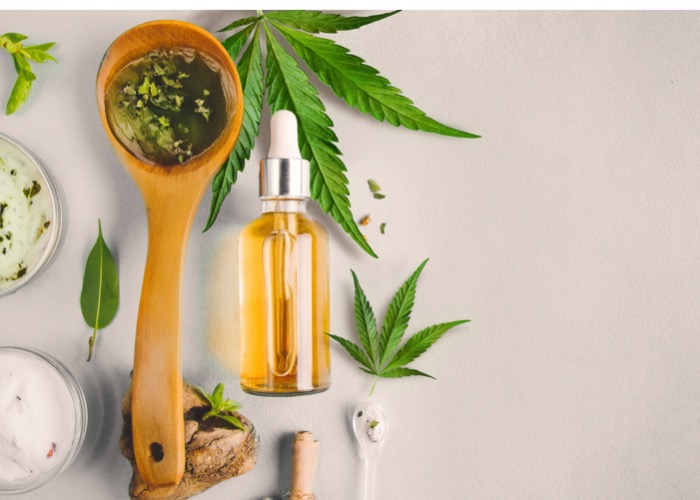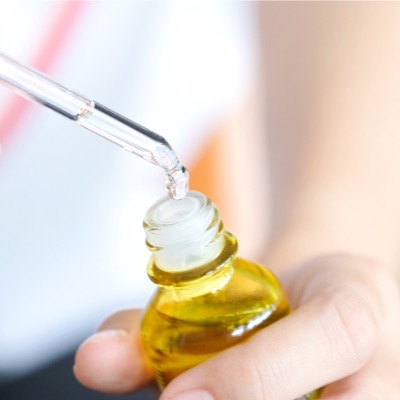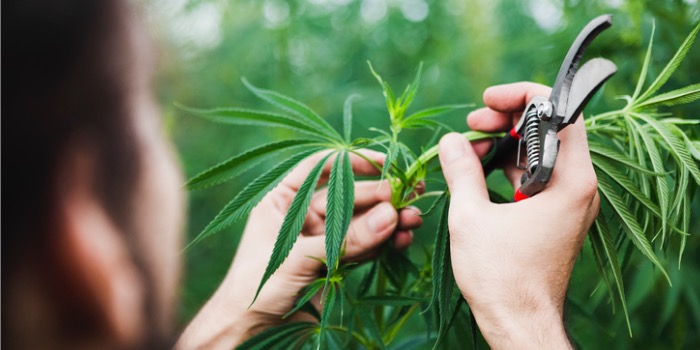Can you afford to ignore the CBD market?
In OTC
Follow this topic
Bookmark
Record learning outcomes

Whatever your views on stocking cannabidiol, there is no denying the huge popularity and profitability of this surging market. Here's the latest brand news and legislation updates.
According to the Centre for Medicinal Cannabis (CMC), the UK cannabidiol (CBD) market is worth £300 million and is predicted to grow to £1 billion by 2025. There is massive consumer interest in the area: six million UK adults used a CBD product last year and regular users spend an average of £24 a month on them. Even if you don’t stock CBD products, the chances are your customers will want to know about them, so it makes sense to keep up to date with developments.
“Pharmacies are well placed to supply CBD products, and not just because we’re health experts,” says pharmacist Sid Dajani from Wainwrights Chemist in Bishopstoke, Hampshire, which stocks Dragonfly CBD products. “We know that these products can affect liver enzymes, which means they can interact with other medication a patient is taking. As these are not yet regulated products, pharmacists can help by ensuring the CBD products they sell are chemically stable and of good quality. We can ensure our products are free from THC [tetrahydrocannabinol, the main psychoactive compound in marijuana] and solvents.”
Numark pharmacy services manager Lucy Morris says it’s important to remember that no medicinal claims can be made for CBD products. “Customers who are uncertain about whether to make use of these products will benefit from advice from a healthcare professional,” she says. “Pharmacy is perfectly positioned to support customers by offering more reliable advice and guidance than other retailers might be able to offer, including the potential for interactions with any medicines they may be taking.”
Pharmacist Shanti Mistry at Mistrys Pharmacy in Market Harborough, Leicestershire, stocks Goodbody Botanicals products. “The challenge is to find a supplier that is licensed, ethical and able to supply products of consistent strength,” he says. “We have seen a huge surge in demand in the past
12 months.”
Inconsistent regulations
In a YouGov poll carried out last November, 45 per cent of people surveyed said they were not confident that all CBD products were labelled with the correct information or had been properly tested by a regulatory authority. Furthermore, 48 per cent said they would be more likely to try CBD products if they could be certain they had been produced to tight regulatory standards.
“Most CBD products are misunderstood at present because enforcement is not consistent or proactively pursued and there is no continuity across different products that a consumer can identify with and understand exactly what they are buying,” says Mark Tucker, CEO of CBD specialist TTS Pharma. “This allows plenty of non-compliant producers to take advantage of the lax controls and infiltrate the market unchecked; some of them are spending large sums on lobbying for change to accommodate their lack of compliance. Consistent policing and enforcement would allow a legitimate market to flourish, based on consumer and supply chain trust, which is absent at present. And, more importantly, it would allow a domestic industry to become established without risk of being undermined by cheap, low quality imports.”
CBD oils can only be sold as food supplements, rather than as licensed medicines and therefore cannot make health claims. The most important legal development has been the EU classification of extracted cannabinoids as Novel Foods from January 2019. Novel Foods are those that have not been widely consumed before 1997, and they also include items such as chia seeds and cholesterol-lowering spreads. The FSA wants all CBD products classified as Novel Foods and is encouraging UK manufacturers to submit applications to enable this.
“Looking at this from a regulated industry perspective, it is long overdue and will better define where CBD as a food stops and a medicine begins, which will help everyone to make better decisions as to appropriate use and dosing,” says Mr Tucker. “Will it help to form an industry standard for these products and so increase consumer trust? Absolutely – because a Novel Foods dossier must define the supply chain, the product’s quality and comparable benchmarks for safety protocols and standards against other commonly used products.”
Lack of standardisation in the CBD industry makes it difficult for consumers to know which products to choose and whether they can trust the labels on the products they buy. Laboratory tests undertaken by the CMC and exposed in its 2019 report, CBD In The UK, found that labelling can be inaccurate and misleading. No less than 62 per cent of the products they examined didn’t contain the promised level of CBD, 45 per cent were found to contain detectable levels of THC and only 38 per cent were within 10 per cent of their advertised CBD content.
“Clearer labelling would definitely help the CBD industry’s credibility,” says Mr Dajani. “I think more pharmacists would be willing to stock these products if they were standardised and labelling was clear.”
Dragonfly CBD chief operating officer Hannah Skingle believes the biggest hurdles at the moment for CBD companies are the regulations. “There is a lot of confusion around and we have to work hard to clear this up if we want to continue expanding this market,” she says. Ms Skingle also believes that applying for Novel Food classification, as Dragonfly is doing, will help to ensure consumer safety.
Marc Burbidge is quality and development lead at the CMC, which has created a trade body, the Association for the Cannabinoid Industry (ACI). “Our ACI charter has clear pillars of compliance,” he says. “One of the pillars includes labelling and will be required for companies that want to label their products legally. When we officially launch our Kitemark, our audit committee will be responsible for ensuring accurate labelling compliance is adhered to.”
The NPA has called for clearer information and better checks on the contents of CBD products. “In the case of CBD products, pharmacists should take account of current Home Office guidance, although it must be said that the current guidance is difficult to interpret,” says Jasmine Shah, head of advice and support services. “We would welcome clear, authoritative guidance that makes it easier for manufacturers, healthcare professionals, retailers and consumers to make informed choices, keeping everyone on the right side of the law and safe from harm.
The Association for the Cannabinoid Industry (ACI) was created in November 2019. It has launched an ACI quality charter and is working towards the introduction of a Kitemark for CBD products that will reassure consumers that their product meets the regulations.
Safety advice for pharmacy staff
Here’s what you need to know if you’re considering stocking CBD products:
“Our advice to pharmacists considering whether to stock CBD products is to ensure they are acting legally and in the best interests of patients, which is the same advice we’d give about all other products sold or supplied in pharmacies,” says Jasmine Shah, head of advice and support services at the NPA.
“In the first instance, I would direct pharmacists to the FSA website, which has a good explanation of products that are legal and able to be sold under UK legislation,” says Paul McCourt, CEO and co-founder of Celtic Wind Crops. “I would also urge pharmacists to learn about the different types of CBD products and the difference between Novel Foods and cold-pressed CBD products.”
“If pharmacists are concerned about safety or efficacy before stocking CBD products, we’d suggest they check the MHRA rulings and with the FSA and trade bodies,” says Dr James Linden, founder of GreenLight Medicines. “It’s important for customers to discuss any medication they’re taking with the pharmacist before using CBD to ensure it’s safe to take it. We have a portal where pharmacists can check this.”
CBD market update: the numbers
The growth of the market has largely been driven by what has been said about CBD in the media. “There is a lot of overwhelming anecdotal evidence to suggest that it is beneficial, although of course we can’t make any medical claims for its use,” says Dr James Linden, founder of GreenLight Medicines. “I think there’s been a lot of overpricing in the CBD market, and we are trying to lead prices downwards, while still providing high quality products. There is huge potential for growth in this market.”
At £300 million and with 1.3 million users, the UK market for CBD is already far larger than the vitamin D market (£145 million) and the vitamin C market (£119 million) combined. It is currently enjoying double-digit growth and its predicted rise to £1 billion worth of annual sales by 2025 will make it the same size as the entire UK herbal supplements market in 2016.
 Surveys by YouGov and Dynata show that between 8 and 11 per cent of adults (four to six million people) have tried CBD. “In 2018, the number of people using CBD in the UK increased by 99 per cent, and I expect the 2019 figure to be similar,” says Simon Manthorpe, chief executive of analytic services provider EOS Scientific. “This growth is in part due to the relative time CBD has been available in the UK.”
Surveys by YouGov and Dynata show that between 8 and 11 per cent of adults (four to six million people) have tried CBD. “In 2018, the number of people using CBD in the UK increased by 99 per cent, and I expect the 2019 figure to be similar,” says Simon Manthorpe, chief executive of analytic services provider EOS Scientific. “This growth is in part due to the relative time CBD has been available in the UK.”
More than 70 per cent of UK consumers are buying tinctures, oils or capsules, which suggests a desire for systemic use and higher CBD content. The average spend is £24 per month. Adults aged 55-plus are the most frequent users, accounting for 31 per cent of the market.
Most consumers purchase CBD products online. “The larger retailers have as yet not fully embraced CBD due to the issues around legality,” says Mr Burbidge. “People also have the opportunity to try a wider range of products online to find the one that is right for them.” Ms Skingle explains: “The CBD market started out online about four years ago when there weren’t any high street suppliers.”
Mr Dajani says the main reasons why customers want to use CBD products are to treat pain, anxiety and insomnia. This correlates with what the CMC has seen. “The main areas of use are for mild anxiety and depression, inflammation and sleep,” says Mr Burbidge. “A large proportion of the older generation are seeing the benefits [of CBD] as a neuroprotector and are using it with a view to reducing the likelihood of neurodegenerative illness in later life.”
Part of the popularity of CBD has to do with its safety profile. To date, there is no evidence of abuse-related problems associated with pure CBD. “The best evidence now available confirms that pure CBD is not addictive, is well tolerated and presents no health risks from sustained use,” says the CMC report.
Brand news
Goodbody Botanicals has launched a CBD range for pharmacies that includes four peppermint-flavoured CBD oil drops, CBD soft gels and a CBD balm. A simple ‘Low to Max’ strength label makes it easy for customers to choose the strength they need, and Goodbody offers PoS materials and a staff training programme.
Celtic Wind Crops has launched the Synergy range, plus a new skincare and pet range. The Synergy range combines the company’s multi-complex CBD whole hemp capsules with other health-boosting ingredients for a synergistic effect. Celtic Wind Crops uses a cold-pressing technique to extract the oil. Three variants are available: CBD Canna-Mag, with magnesium; CBD Canna-Curcumin, which blends hemp powder with curcumin, and CBD Canna-Sea, with kelp.
Dragonfly CBD comes in three variants: a 300mg bottle (3.33% CBD), a 500mg bottle (5.56%) and a 1,000mg bottle (11.11%). It is formulated from Dragonfly Biosciences’ premium CBD oil and the company manages every step of the production process, from seed to shelf.
Canabidol has added two new products – Physio and Relax – to its CBD Health range of oral suspensions. Physio is enriched with calcium to support muscle and bone function and is blueberry flavoured, while Relax includes lemon balm to support relaxation and mental wellbeing.
GreenLight has launched the first online CPD-accredited CBD learning module for pharmacists in the UK and Ireland. The free module covers every aspect of cannabis as a supplement or medicine and was developed with the support of the Academy of Medical Cannabis. For more information, visit greenlightsupplements.com.
Herts Hemp has launched Herts Hemp 500mg CBG drops. Cannabigerol (CBG) has been dubbed the stem cell of CBD. Like CBD, it is non-intoxicating. Cannabigerol acid is the precursor of CBG and, as the cannabis plant matures, natural enzymes transform it into CBD acid and THC acid, which subsequently become CBD and THC once exposed to heat. To date, CBG has been difficult to harvest, but growers are now breeding plants with higher concentrations of CBG to make it available commercially.
Vitality CBD has launched a fitness range, Active, which includes four distinct CBD drops formulated for different points during a workout, alongside a muscle rub. It also has a cosmetics range, Infused, on the horizon, with products ranging from anti-blemish creams to bath bombs and exfoliators.
Ambience CBD retails its Everyday and Apothecary ranges through Boots and Holland & Barrett. The company is currently rebranding its Apothecary range, and is developing new tinctures that are expected to be released shortly.
Improve your cannabidol category
- “Make sure you know everything about the brands you decide to stock,” says pharmacist Sid Dajani. “Avoid CBD cosmetic products. These are gimmicks and won’t do your credibility any good. Do your research before you pick a brand to stock.”
- “Initially, I would suggest looking for companies that are signed up to the Association for the Cannabinoid Industry (ACI) because this would give you assurances they have signed up to adhere to the pillars of compliance set out in our charter,” says Marc Burbidge of the Centre for Medicinal Cannabis, which set up the ACI. “If this is not the case, I would suggest ensuring products are third-party lab tested, have batch traceability and have the correct labelling, but most importantly you are buying from companies that use raw materials that are going through the Novel Foods application process.”
- “Customers need to be aware that your pharmacy stocks CBD, so clear signage is a must,” says George Thomas, managing director of Goodbody Botanicals. “Positioning should be in a good location. We have seen the best results achieved through counter unit displays. Partner with a reputable brand that offers products that are fully supported by lab test results and have clear and consumer-friendly packaging and PoS material.”
- “Education is key to building a good CBD category,” says Celtic Wind Crops’ Paul McCourt. “This can be done through flyers and displaying information on the products. Displays need to hold a range of products, from ingestible to topical, so customers have choice.”
- “Pharmacies that are thinking about stocking CBD should partner with a brand that puts a strong emphasis on training pharmacy staff,” says Dragonfly CBD chief operating officer Hannah Skingle. “You and your staff need to familiarise yourselves with the controlled substance laws in the UK.”
- “Ensure advice is available at the fixture around CBD as it is still a misunderstood category,” says Numark marketing co-ordinator Cathy Crossthwaite. “Include an invitation to speak to a member of staff for more information before buying. Research the products available and consider the most appropriate products and brands to pharmacy. Does the brand represent safe, effective solutions that fall in line with the conventions of pharmacy? Visit other retailers to see what they’re stocking.”
- “It’s important to ensure your customers understand the products, that they may interfere with medications and that they are not a complete alternative to their prescribed medication,” says Shanti Mistry of Mistrys Pharmacy.
- “Variety is the spice of CBD,” says EOS Scientific’s Simon Manthorpe. “From balms to tinctures, edible gummies to cosmetics, CBD can come in many forms. My advice would be to show this off.”
Future projections
With an estimated market value of £1 billion in five years’ time, what does the future of the CBC market hold for pharmacy?
“As companies become more professional and begin adhering to the specific criteria to ensure compliance coupled with numerous technological advances in terms of improving efficacy and delivery of CBD products, we anticipate the industry will grow exponentially as we move forwards,” says Mr Burbidge. “The introduction of other cannabinoids, such as CBG and CBC, into the market will all give further opportunities for growth.”
Ms Skingle predicts an era of ‘fad’ in the global CBD industry. “We’re seeing lots of bizarre product launches,” she says. “I most recently came across a CBD-infused mattress. We are hoping for more serious, high quality products in future.”
“Recent developments hint at a possible evolution towards three related, but distinct, sectors for cannabidiol – all utilising CBD in different ways and serving different goals, and all potentially under revised (or new) regulatory regimes,” says the CMC report. It also predicts increased product diversification and greater competition and imports into the UK, along with issues around provenance and traceability.
“Regulation will improve underlying supply-chain quality, thus enabling the market to flourish,” says Mr Tucker. “Weeding out the cowboys is a consumer safety priority and will necessarily raise the bar for bulk suppliers that carry the moral and legal responsibility to supply the business-to-consumer brands. Once enforcement of existing regulations is effective, I think the prospects are very good for strong product development opportunities.”
“It would be great if CBD brands didn’t have to rely so much on the cannabis leaf imagery,” Mr Manthorpe says. “Obviously, the fact that the compound is a cannabis derivative is what sets it apart on the market, but CBD has its own benefits. The imagery is still a hindrance to many consumers using CBD. If CBD brands could market the potential benefits rather than the origin, it could entice a greater market share.”
Views of the P3pharmacy category panel
 Selina Gill, Rowlands Pharmacy, Redditch
Selina Gill, Rowlands Pharmacy, Redditch
“Patients are confused about whether CBD products are recreational drugs, as well as the clinical benefits. Initially, patients often opt for the lower potency of 0.25 per cent oil, often for chronic conditions such as rheumatoid arthritis. We stock higher strength oils, but no other CBD products. Patients often turn to CBD oil after using prescribed painkillers they want to reduce or stop using because of side effects. Growth in this area is dependent on ensuring patients understand the mode of action of CBD products and that perceived benefits may not occur immediately.”
 Marisa Maciborka, Bedminster Pharmacy, Bristol
Marisa Maciborka, Bedminster Pharmacy, Bristol
“We don’t currently offer any CBD products in our pharmacy. However, we do get plenty of customers coming into the pharmacy and asking about them. The most common queries are about how effective they are and how much they cost. The public are becoming much more aware and more interested in alternative medicinal products in general, and CBD is part of this growing trend. I think there are certainly opportunities to grow the CBD market in pharmacy if the products become more affordable in the future.”
 Sarina Mughal, Day Lewis, London SW1
Sarina Mughal, Day Lewis, London SW1
“Our customers expect to see the latest products and they come in and ask for CBD products. They are flying off the shelves. They ask us what CBD is, where it comes from and whether it’s legal. We explain that it’s a food supplement, not a medicinal product, and that we can’t make any medical claims for its use. Customers use it for sleep, anxiety, depression and pain. We also stock CBD topical products such as massage oils and creams. If you’re thinking about getting involved, do your research and use a reputable brand.”

